 I have been thinking principally about the various kinds of security we all want and the various kinds of insecurity we face. Upon reflection, these turn out to be much broader than the way the concepts of security and insecurity are usually understood.
I have been thinking principally about the various kinds of security we all want and the various kinds of insecurity we face. Upon reflection, these turn out to be much broader than the way the concepts of security and insecurity are usually understood.
When we think of security in all its senses, it seems to me that the importance of global justice for security simply cannot be stated too. And secondly, it seems to me that public goods are essential for justice and hence for security—both here in the United States and around the world.
But first let us consider how security is commonly understood.
As it is usually talked about these days, as in “Office of Homeland Security,” “our national security,” “the conflict between civil liberties and security considerations,” “security was tightened,” or, more mundanely, “security guards,” the threats to our security are always intentional threats to our safety and well being, which of course means they are threats by people, whether individuals, groups, or nations.
Not so long ago, Communists were said to pose the biggest threat, now it is “terrorists” and “rogue nations.”
Security is a major growth business here and in many other parts of the world and an increasingly ‘high tech’ one. While we used to worry about intentional threats only from criminals, now our daily lives have been transformed by far more serious security concerns. More and more people have to carry, even to wear ID cards, big concrete blocks line the sidewalks of many of our streets and our access to countless public buildings is tightly controlled by phalanxes of security guards and video monitors. But most people pay little attention; the possibility of terrorist attacks has been normalized.
Intentional Threats
 Generally speaking, most Americans’ concern about security today that is posed in terms of the word “security” is about intentional threats by people. We pay much less attention to threats to our safety and well being that are from nature rather than people, or are only indirectly from people, as unintentional consequences of human action. Though we read all the time about the dangers of global warming—a threat from nature that is an unintended result of human action—that is not what is usually intended by a “security” threat and it does not grip our imagination and fears in any way proportional to its severity. Hans Blix, the former head of the International Atomic Energy Agency (IAEA) said, “I’m more worried about global warming than about war.” But even for those of us who share his assessment of the severity of the threat of global warming, I think that such threats do not grip our imagination and fear in any way proportional to their seriousness.
Generally speaking, most Americans’ concern about security today that is posed in terms of the word “security” is about intentional threats by people. We pay much less attention to threats to our safety and well being that are from nature rather than people, or are only indirectly from people, as unintentional consequences of human action. Though we read all the time about the dangers of global warming—a threat from nature that is an unintended result of human action—that is not what is usually intended by a “security” threat and it does not grip our imagination and fears in any way proportional to its severity. Hans Blix, the former head of the International Atomic Energy Agency (IAEA) said, “I’m more worried about global warming than about war.” But even for those of us who share his assessment of the severity of the threat of global warming, I think that such threats do not grip our imagination and fear in any way proportional to their seriousness.
Right after 9/11 there was the anthrax scare that raised the threat of bioterrorism. Although it turned out not to be as serious as was thought and not to be from a foreign source, nevertheless the threat is potentially very real, simply because biological and chemical weapons are so cheap. Unlike all other Weapons of Mass Destruction, (WMD), biochemical weapons are potentially accessible to the poorest nations and individuals. During the anthrax scare which in the end killed only six people, it was quite apparent that the absence of a decent public health system in the United States renders us defenseless against a threat of this kind. A minimum necessary condition for increasing our security against the threat of biochemical terrorism is a good public health system. Now, millions of Americans are uninsured, hence not secur against ordinary medical problems, but since the harm there is not intentional, it gets less priority; it seems less threatening—except of course to the sick person and their families who don’t have insurance.
Common Security and democratic control
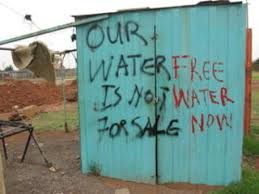 The threat to poor South Africans’ security is not from terrorism or other intentional acts—except of course the act of privatizing the provision of water. Both for poor South Africans and Americans whose water has been contaminated by dumping of industrial waste, the problem is that access to a basic necessity of life is compromised by the profit system.
The threat to poor South Africans’ security is not from terrorism or other intentional acts—except of course the act of privatizing the provision of water. Both for poor South Africans and Americans whose water has been contaminated by dumping of industrial waste, the problem is that access to a basic necessity of life is compromised by the profit system.
(…)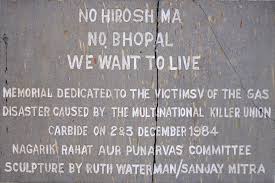
The crucial point from both these examples like Bhopal or Chernobyl is that is that in order to ensure our security, the essentials of human life must be under public democratic control—how else can we be sure that they will truly serve our interests—as we perceive our interests? There are risks to almost everything we humans do and we often have competing goals. This means that complex decisions and often trade-offs have to be made, and no one is in a better position to make these decisions than the people who are most directly affected. Contrary to received wisdom, no great expertise is required.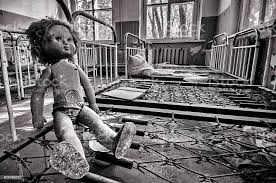 A fascinating book called Demanding Democracy After Three Mile Island shows the changes in ordinary peoples’ attitudes toward business and government after the accident at the nuclear power plant at Three Mile Island, Pennsylvania. From feeling incompetent and trusting the authorities, people in the community came to feel that they were the ones who should decide. One woman in the community said that if the experts had told her that nuclear energy would lower energy costs so she could use her electric dryer, she would prefer to hang her clothes on a clothesline now that she knows the risks. That is why experts are needed: to lay out the implications of different technical choices. But then it is only the individuals directly involved who can evaluate these implications and choose in terms of what they most care about.
A fascinating book called Demanding Democracy After Three Mile Island shows the changes in ordinary peoples’ attitudes toward business and government after the accident at the nuclear power plant at Three Mile Island, Pennsylvania. From feeling incompetent and trusting the authorities, people in the community came to feel that they were the ones who should decide. One woman in the community said that if the experts had told her that nuclear energy would lower energy costs so she could use her electric dryer, she would prefer to hang her clothes on a clothesline now that she knows the risks. That is why experts are needed: to lay out the implications of different technical choices. But then it is only the individuals directly involved who can evaluate these implications and choose in terms of what they most care about.
I WOULD LIKE TO TURN NOW TO THE QUESTION OF WHAT MIGHT explain our focus on threats to security that come from intentional acts. It is certainly not because intentional acts do more harm. Around 8.5 million people were killed during the four years of World War I, but more than twice that many—20 million people—died from the flu pandemic in 1918-19. So what does explain the focus on intentionality when we think of threats to our security? Some might argue that the focus on intentionality has moral roots—the most basic negative duty is not to harm, and it’s worse to harm intentionally. Acts of commission are generally seen as worse than acts of omission, and positive rights and duties (rights and duties that require help, rather than simply requiring that one not harm or interfere with another person’s actions) are not universally acknowledged—certainly not in the laws of our country. Hence the focus on intentional acts might be said to have a legal basis—all societies have laws against harming people that reflect our moral judgment that harm done intentionally is the worst kind (except when the government does it in wars or capital punishment).
So what does explain the focus on intentionality when we think of threats to our security? Some might argue that the focus on intentionality has moral roots—the most basic negative duty is not to harm, and it’s worse to harm intentionally. Acts of commission are generally seen as worse than acts of omission, and positive rights and duties (rights and duties that require help, rather than simply requiring that one not harm or interfere with another person’s actions) are not universally acknowledged—certainly not in the laws of our country. Hence the focus on intentional acts might be said to have a legal basis—all societies have laws against harming people that reflect our moral judgment that harm done intentionally is the worst kind (except when the government does it in wars or capital punishment).
Natural catastrophes, ‘natural threats’?
Perhaps we can just extend this explanation and say that we focus on threats to our security from human acts for practical reasons, because they are potentially under our control, whereas other threats to our security, like natural catastrophes, are out of our control. This sounds reasonable; what is the point of focusing on threats that we can do nothing about? And some natural catastrophes are of course out of our control. Some, but not all; some “natural” threats may be caused by human action. Global warming obviously is, but some are less obvious. The cholera epidemic in South Africa I mentioned earlier is called a ‘natural disaster’ by the government, but in reality is due to their privatization of water. Or consider the drought in many parts of Africa, or the sand storm that came over Beijing a couple of years ago; both are caused by cutting down too many trees. Moreover, even natural threats that are not caused by human action, might nevertheless be controllable by human intervention—as diseases are in the richer parts of the world.
So some natural threats, like global warming or the drought, are clearly side effects of our economic system—‘collateral damage’ one could say—so they are potentially under our control. But we are all too prone to see the economic system as being like nature rather than constituted by human relations and countless human acts. We listen to the stock market report like we listen to the weather report, as something we’re powerless to affect, that happens to us, rather than something we do. This is, of course, what Marx called “commodity fetishism,” which he saw as a very central aspect of the ideology of capitalism. So long as we believe that it is out of our control, then it is. So the focus on intentional acts has the effect of shielding the economic system from scrutiny and from being exposed as the major cause of insecurity for millions of people around the world. Ernest Mandel once pointed out that the number of calories consumed by the prisoners in Nazi concentration camps exceeds what millions, perhaps billions, of people get every day, simply as a result of the normal workings of the global market. Another comparison: Everyone knows the rough figures on the deaths from the World Trade Centre attack: upwards of 3,000 people were killed; some of us know that at least the same number, maybe more civilians have been killed in Afghanistan by U.S. Military forces. 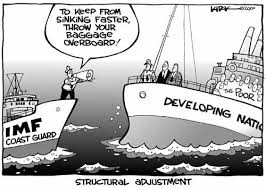 But few people are aware of the effects of the economic downturn that was brought on or exacerbated by the attack; according to the World Bank, in countries without a social safety net, 40,000 children will die from disease and malnutrition.
But few people are aware of the effects of the economic downturn that was brought on or exacerbated by the attack; according to the World Bank, in countries without a social safety net, 40,000 children will die from disease and malnutrition.
Why doesn’t this suffering and insecurity deserve as much concern? Is it not so bad because it is not intentional? As I said earlier, there is more of a consensus on the immorality of intentionally harming people than there is on the immorality of failing to help, on negative duties rather than positive duties. But that’s among philosophers and politicians. Ordinary people around the world struggle for the satisfaction of their basic needs and think it’s only right; most other people agree even if they wouldn’t pose it in terms of positive rights. Furthermore, even within the narrow terms of negative rights and duties, it is almost as bad to do harm unintentionally but with reckless disregard for the harmful consequences—drunk driving for example—as it is to do harm intentionally—and this conviction is embedded in our legal system. You might be charged with manslaughter rather than murder, but manslaughter is still pretty bad. Certainly, this description—doing harm unintentionally but with reckless disregard—would apply to the ordinary workings of global corporate capitalism. So there is little basis for saying that the focus on threats to our security from intentional acts is due to their being so much worse from a moral point of view.
Perhaps the focus on threats to our security from intentional acts has psychological, emotional roots. Perhaps we are afraid, most basically, of someone trying to hurt us. Even if the objective harm is the same as harm that is from natural causes, it is more hurtful psychologically when it is intentional because it is a conscious, deliberate rejection of who we are. And if our attacker feels this way, maybe the rest of the world does too. Survivors of violence report that it changes the way they look at the world. Perhaps also we’re more afraid of intentional threats to our security because the danger tends to be sudden, to hit all at once, so there is no time to get used to it and the fear of the surprise intensifies the fear of the harm and so when it occurs we experience shock. Some researchers have suggested that the stress of waiting for the blow to fall explains why sometimes victims of domestic violence seem to provoke the violence. The shock of the totally unexpected blow was multiplied many thousand times in the attack on the World Trade Center where more people were killed all at once than at any other time in history. In contrast, the damage done by the absence of goods to satisfy basic needs tends to hit far more slowly; people suffer and die from malnutrition little by little over a very long time making it quite unsurprising; in fact, it just seems “natural.” As Amartya Sen points out in arguing against the satisfaction of preferences as a basis of welfare ethics, in some contexts women suffering from malnutrition seem not even aware that they are hungry. Psychology students may remember the gruesome experimental results that a frog dropped in boiling water struggles mightily while a frog dropped in water which is then heated to boiling does not.
Whose security ?
Perhaps the crucial issue explaining the focus on threats to our security from intentional acts is the one I mentioned : namely, that when we speak about security, we have to ask, “Whose security?” Perhaps it is simply those of us who are fortunate enough not to have to worry about threats to our safety and well- being from nature or from the ordinary workings of the economic system who focus on the dangers of people intentionally trying to hurt us, whether they be ordinary criminals or terrorists. Thus it is especially Americans, Europeans and the elites of the developing world who focus on security in the narrow sense. Of course, people in war anywhere have to focus on those dangers; if they’re not alive, they don’t have to worry about clean water. But ordinarily, poor people have more basic worries. Thus, it is not surprising that the only academic discipline where “security” in used in the broad sense I am advocating is in development studies, e.g., “food security.”
Whatever explains our narrowness in thinking about threats to our security—perhaps all of the above factors contribute—the effect is the same, viz. that we miss the most crucial threats to global security in the long run and the best way to defend ourselves. The focus on intentional acts is simply too narrow to provide genuine security, certainly for the poor of this country and the rest of the world, but also, increasingly, for the rest of us as well. To make everything necessary for our security into public goods that are democratically controlled is the only way, I maintain, that the human species can be secure in the long run. This would be global justice. Although we can hardly afford to be optimistic, there is some evidence that more and more people around the world are beginning to think in this direction—and to organize. The anti-globalization movement—more properly called the global justice movement—is enormously promising. (…).
The gender dimension
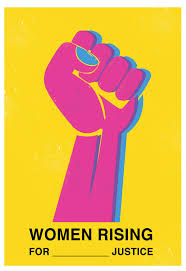 And indeed it is pretty obvious, once you think about it, how “gendered” the two meanings of “security” and threats to security are. When we talk of security in the narrow sense, as in “our national security interests,” we know that it is men who will be defending us against other men who are attacking us. Although the sexual division of labor is amazingly variable through human history, one thing that does not vary is that men are responsible for warfare. Even though women are now soldiers in the United States, on the ground and piloting planes, this is basically unchanged. In photo after photo of ordinary soldiers, military leaders, “experts” and politicians, women are out of sight—except for the occasional photogenic exception like Jessica Lynch, And today’s warfare is a very high-tech affair, another masculine domain.
And indeed it is pretty obvious, once you think about it, how “gendered” the two meanings of “security” and threats to security are. When we talk of security in the narrow sense, as in “our national security interests,” we know that it is men who will be defending us against other men who are attacking us. Although the sexual division of labor is amazingly variable through human history, one thing that does not vary is that men are responsible for warfare. Even though women are now soldiers in the United States, on the ground and piloting planes, this is basically unchanged. In photo after photo of ordinary soldiers, military leaders, “experts” and politicians, women are out of sight—except for the occasional photogenic exception like Jessica Lynch, And today’s warfare is a very high-tech affair, another masculine domain.
On the other hand, if we think of security in the broader sense of security blankets and social security, then women immediately enter the picture. The other invariable piece of the sexual division of labor is that women do the bulk of care-taking—of the young, the old and other dependents, so women around the world are providing the bulk of the ongoing material and emotional security everyone needs. This is not ‘high-tech’ at all, but simply caring labor, usually on top of other labor. When the market threatens this security by not providing enough for a family’s needs, women pick up the slack; when public goods are cut back women’s burden increases. This has been worsened in poor countries by Structural Adjustment Plans that force cutbacks in social services and in our own country with so-called welfare reform. The difference is that in our country the burden of privatization does not fall equally on all or most women; it falls predominantly on poor and minority and overwhelmingly on immigrant women who do the bulk of caring labor—as nannies, homecare workers, elder care workers—caring labor that is still not acknowledged as a public good. As long as this socially necessary labor is left to private arrangements, it will fall primarily on women, and particularly the poorest and most vulnerable, women who have to leave their own families to care for others. Sometimes they leave them at home in the same city, sometimes far away back in their home countries. These are all, of course, issues of global justice.
For our own security, it is time we reconceived the meaning of security. When we do, we will recognize its connections to global justice.
Nancy Holmstrom (*)
with the author's permission
(*) Chair of the Philosophy Dept at Rutgers in Newark. Nancy H. has written on many central topics in Marxist and feminist theory ; has co-edited 'Not For Sale: In Defense of Public Goods' (2000) and edited 'The Socialist Feminist Project: A Reader in Theory and Politics' (2002).
